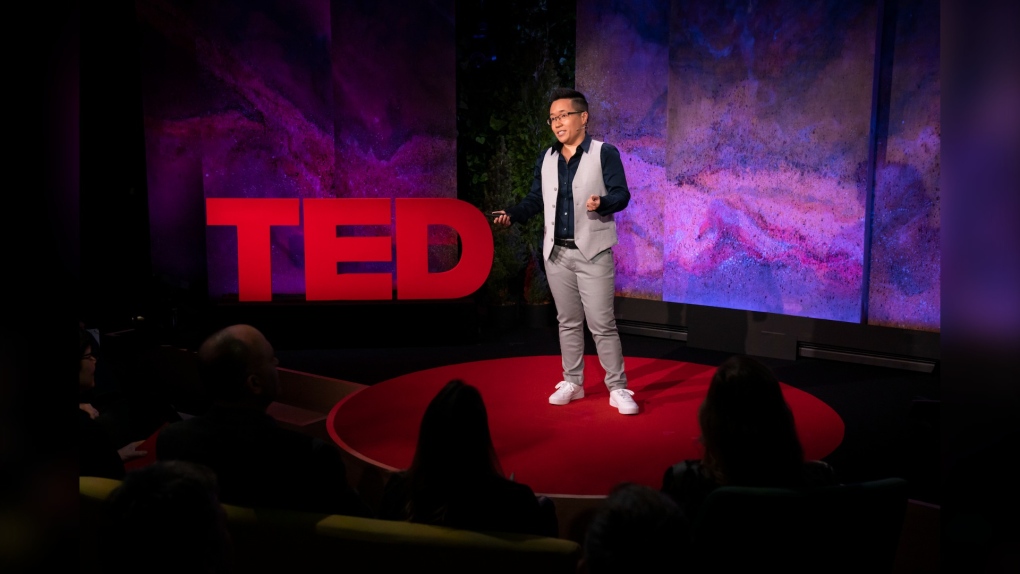What is happy climate action? A B.C. academic’s plan to protect the planet and spread joy
 Dr. Jiaying Zhao, an associate professor of psychology at the University of British Columbia, gives a TEDTalk on "happy climate action" while encourages reducing green house gas emissions while increasing personal satisfaction.
Dr. Jiaying Zhao, an associate professor of psychology at the University of British Columbia, gives a TEDTalk on "happy climate action" while encourages reducing green house gas emissions while increasing personal satisfaction.
A B.C. behaviour scientist is encouraging people to ask themselves two questions before agreeing to anything.
“Will this make me happier?” and “Will this reduce my emissions?” are the guiding queries behind Dr. Jiaying Zhao’s concept of “happy climate action.”
Zhao, an associate professor of psychology at the University of British Columbia, launched a free, online workshop this week in hopes of putting the spotlight on the elation in climate action.
“My colleague Liz Dunn, who is a happiness scientist, asked me, ‘Does climate action always have to be miserable? Can’t it ever be happy?’ This gave me an ‘Aha!’ moment,” Zhao said in release by UBC Friday.
Dunn and Zhao co-designed the online workshop, which the website says can be completed by a group between three and 300 people in an hour or less time.
The goal is to help people create their own happy climate action plans by identifying behaviour changes that can reduce their carbon foot while increasing their life enjoyment.
Some examples include joining a climate rally, since Zhao says it’s a way to exercise a civil right while fostering community.
“It can potentially lead to policy change, but it is also a way to interact socially with friends and like-minded people,” she explained.
The principles of Zhao’s action plan overlap when it comes to cycling and carpooling—two activities that are better for the environment and offer opportunities to connect with friends and family.
Happy action plans aren’t just for individuals, however, says Zhao.
“Local governments can also enact happy climate polices, such as installing bike lanes and transforming public transit systems,” she said.
In the release, Zhao pointed to a study exploring links between high-speed rail and happiness that was published in the journal “Transportation Research: Part A” earlier this month.
“This paper suggests that it increases happiness by (1) reducing commute cost and time, (2) reducing pollution and improving health (3), lowering commodity prices and (4) increasing individual and family income,” Zhao wrote on Twitter.
“Very cool findings! My parents love high-speed rail because it's faster, cheaper, more comfortable and climate-friendly than flying. This should be the future for every city in the world!” Zhao continued.
When it comes to flying, Zhao cautions people don’t need to give up travel for leisure while pursing happy climate action.
“Protect your vacations and time off. Those are key ingredients for happiness,” said Zhao.
Travel for work, on the other hand, is something people should look to cut back on.
“People can meet on Zoom. If you must travel for work, I suggest you bundle your trips to meet up with friends an family nearby, or take extra time to sightsee,” Zhao said.
Last month, she gave a TEDTalk in New York on the topic of happy climate action, which was published on YouTube this week.
For those who don’t believe in climate change, Zhao says happy climate actions should be pursued for the sake of life satisfaction alone.
“Taking these actions like riding a bike or carpooling will inherently make them feel happier regardless of whether they believe in climate change or not,” she told UBC.
CTVNews.ca Top Stories

Canada Post presents union with 'framework' to reach deal as strike continues
Canada Post says it has presented the union representing some 55,000 striking postal workers with a framework to reach negotiated agreements.
'Devastating': Missing Surrey, B.C. teen found dead, family says
The family of a missing 18-year-old, who was last seen in Surrey over a month ago, says there has been a tragic end to the search.
The best tips to prepare your car for the winter
Slippery or snow-covered roads, reduced visibility and bitter cold are all conditions that can make driving difficult and even dangerous during cold weather months. CAA spoke with CTV Morning Live this week on some of the best ways you can winterize your car.
PM Trudeau 'surprised' provinces unanimous on accelerated defence spending: Ford
Ontario Premier Doug Ford says his fellow provincial leaders are united in pushing for Canada to meet its NATO defence spending targets ahead of schedule, and that Prime Minister Justin Trudeau was "surprised" to hear it.
Stellantis CEO Carlos Tavares resigns as carmaker continues to struggle with slumping sales
Stellantis CEO Carlos Tavares is stepping down after nearly four years in the top spot of the automaker, which owns car brands like Jeep and Ram, amid an ongoing struggle with slumping sales.
Poilievre calls for asylum seeker cap, border plan as U.S. tariff threat looms
Conservative Leader Pierre Poilievre has demanded the federal government present a plan before Parliament to beef up border security as U.S. president-elect Donald Trump threatens to impose stiff tariffs on Canada.
'Wicked' star Marissa Bode speaks out against 'harmful' ableist comments made about her character
'Wicked' actress Marissa Bode posted a video on TikTok asking for kindness after receiving ableist comments on social media.
Emergency crews battle large fire at Kitchener, Ont. townhouse complex
Waterloo Regional Police say Kingsway Drive will remain closed as emergency crews continue to battle a large blaze at a townhouse complex.
One man dead after shooting at Kitchener's 'A Better Tent City'
One man is dead after an afternoon shooting at 49 Ardelt Ave. in Kitchener.
































